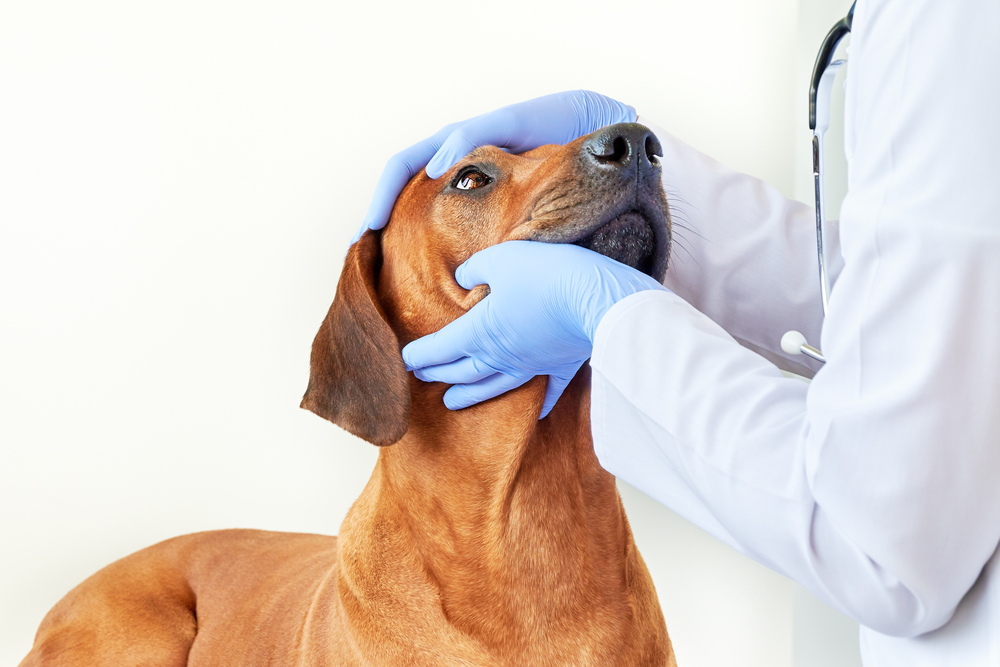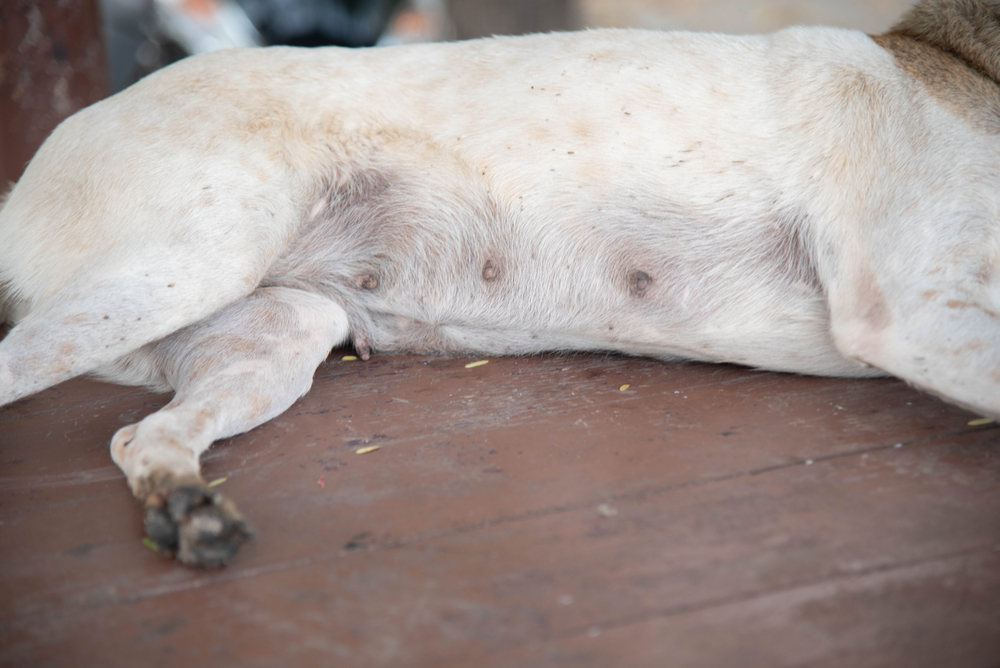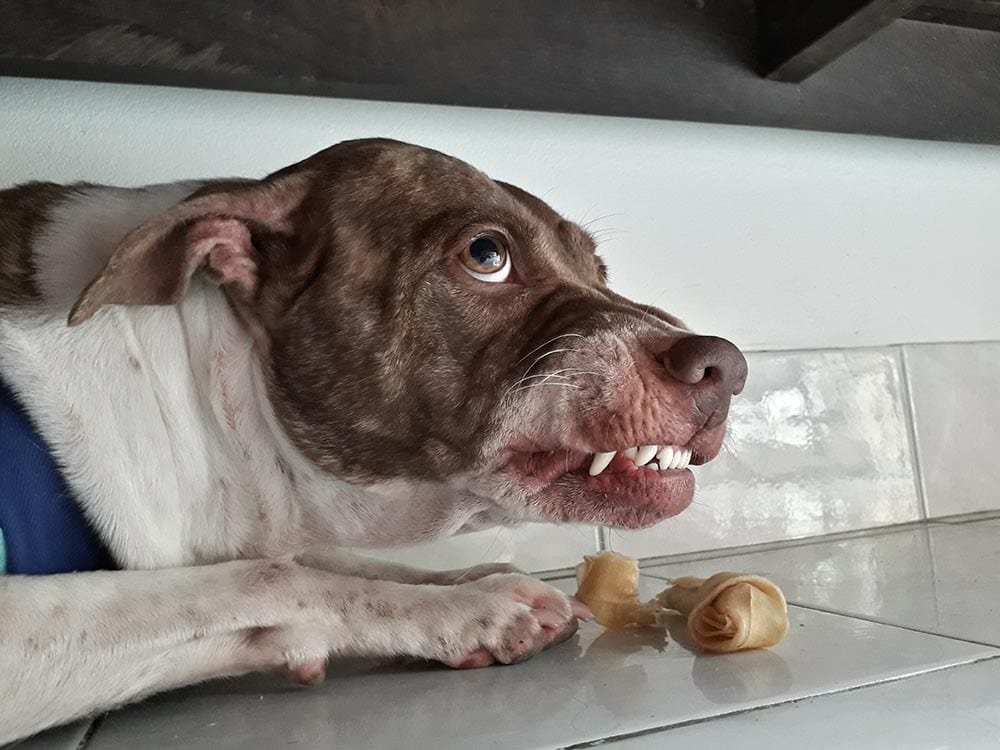Click to Skip Ahead
Most owners have experienced the scare of their dogs ingesting something that can cause harm. Canines are curious creatures and will investigate anything that strikes their fancy. When such an investigation leads to a dog eating something that is not digestible, it’s called a foreign body. The object could be a toy, food wrapper, stick, rock, bone, or anything that they can get into their mouth. But what if your dog swallows an object that doesn’t pass through the intestinal tract or gets stuck in their throat?
This event is known as foreign body ingestion. In this article, we explore this topic, the signs to watch for, and what you should do if your dog lets their curiosity get the better of them.
What Is Foreign Body Ingestion?
Foreign body ingestion occurs when your dog swallows a non-digestible object that enters the digestive tract. Sometimes, it can pass through a dog’s gastrointestinal tract without causing issues, while at other times, it is unable to pass out of the stomach or along the intestines and causes an obstruction. It can also lodge in the esophagus, causing more sudden serious signs.
The problems that eating a foreign body will cause for your canine varies depending on several factors.
 Top 3 Factors That Will Affect the Prognosis of Your Dog
Top 3 Factors That Will Affect the Prognosis of Your Dog
1. What the Foreign Body Consists of and Its Size
Some small, non-toxic, smooth objects can pass through a dog’s gastrointestinal tract without causing issues. Others, such as sharp objects (e.g., skewers and bones) and string, can damage the intestine and cause holes in its wall, causing serious infections in the abdomen. Batteries contain toxic chemicals, and magnets can cause lots of issues too.
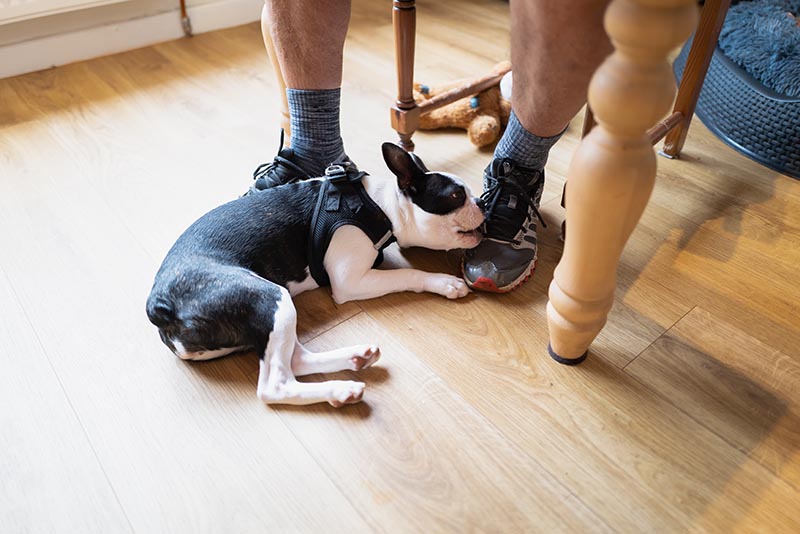
2. Where the Foreign Body Is and How Much It Is Blocking the GI Tract
For example, a dog that has foreign bodies in the stomach and that can still have food pass down the digestive tract will have less obvious signs than a dog that has a complete blockage of their small intestine.
3. How Long the Foreign Body Has Been Present For
If you’re a dog owner, it’s crucial to keep dangerous objects and items in places that your pet cannot reach, but things happen sometimes, and your dog may swallow something before you have the chance to intervene—for example, on a walk or when at someone else’s home. Knowing the signs of foreign body ingestion is crucial so you can seek help urgently.
 What Are the Signs of Foreign Body Ingestion?
What Are the Signs of Foreign Body Ingestion?
Do you know what to do if your dog suddenly develops a problem after swallowing a foreign object? As stated, the signs of foreign body ingestion will vary depending on the object swallowed. Always contact your vet for advice if your dog has eaten something they shouldn’t, and they will advise you on the best course of action,
In some cases, you won’t know whether your dog swallowed something until they are showing signs of a problem. In such a case, it’s essential to know the signs of foreign body ingestion. They are as follows:
- Vomiting
- Diarrhea
- Lethargy
- Decreased appetite
- Abdominal tenderness or pain
- Trouble defecating (small amounts of feces or none at all)
Esophageal Foreign Bodies
An esophageal foreign body is any item that fails to pass into the stomach after being swallowed. In dogs, the most frequently reported objects are bones, treats like rawhide, and sharp objects like fishing hooks and needles. An esophageal obstruction is a potentially dangerous, life-threatening situation and requires immediate medical treatment.
There are two types of esophageal obstruction: partial and full. A small object usually causes a partial obstruction, so food and water can still pass and make their way to the stomach. The signs may not be as obvious with a partial obstruction, but emergency medical treatment is still needed.
A full obstruction is caused by large, irregular-shaped objects (bones, rawhides, etc.) and can prevent water or food from passing through. Let’s look at the signs of esophageal obstruction:
- Gagging or coughing
- Gulping/repeated attempts to swallow
- Licking/smacking lips
- Drooling (with or without blood)
- Lethargy
- Decreased interest in eating/drinking
- Vomiting (may be delayed after eating)
- Pain with movement, particularly the neck or head
If you are concerned about an esophageal foreign body, you should contact your vet immediately. Of course, urgent medical attention is needed if your dog is showing any signs of difficulty breathing. Usually, objects in the esophagus will not affect a dog’s breathing, but objects lodged in the throat or upper part of the esophagus can.
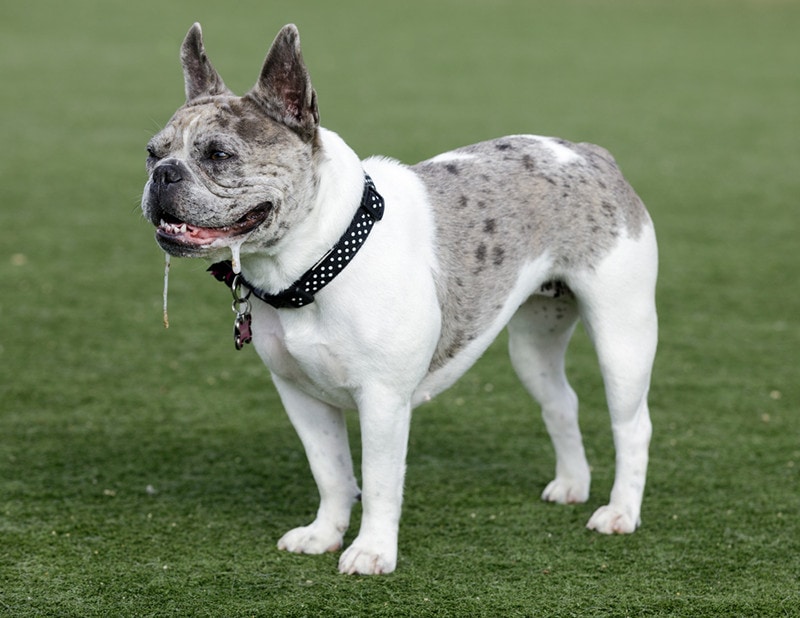
How Do I Prevent My Dog From Ingesting a Foreign Body?
Now that you know the signs of foreign body ingestion, it’s vital to seek urgent medical care if you notice any.
Regarding care, prevention is the best medicine. We know life happens, and sometimes, your dog may swallow something before you have the chance to intervene, but there are measures that you can take to reduce the risk. For starters, avoid giving your dog bones or rawhides. Some owners believe that it’s fine to give their dogs bones from a holiday dinner, but you should avoid this at all costs.
When your dog plays with toys with string, rope, or yarn, they should either be supervised, or these toys should be avoided altogether. Stringy material, when swallowed, can cause the intestines to bunch up and quickly cause serious problems.
Keep harmful objects out of reach of your dog. Puppies are more susceptible to foreign body ingestion because they will put something in their mouths out of curiosity or will simply want to chew on an object due to teething. If necessary, crate your dog while you’re not home to prevent your canine pal from getting into something dangerous.
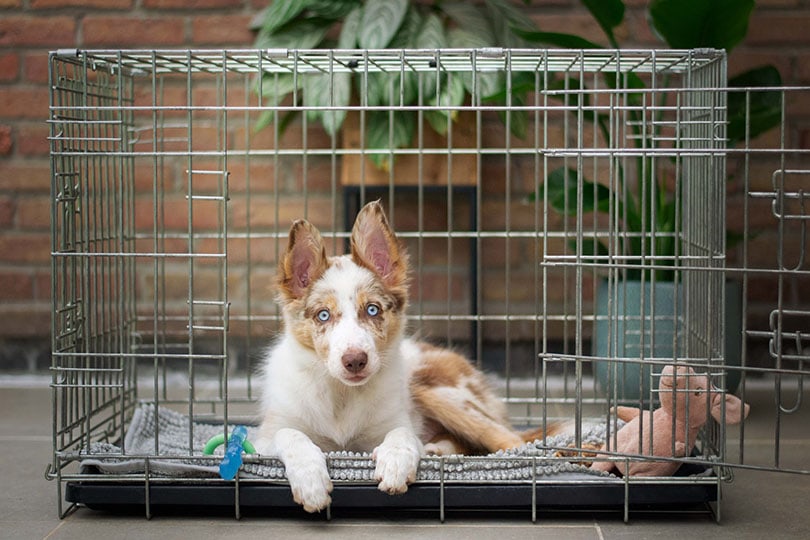
Physical signs are not the only indicators that your dog has swallowed something that can cause problems. If you notice a knocked-over trashcan, scattered materials throughout the home (such as pillow stuffing), a disheveled laundry basket, or pieces of a toy, wrappers, etc., contact your vet, and monitor your dog for signs of foreign body ingestion. It’s a good idea to buy garbage cans with lids and if possible, keep them in an area where your dog cannot knock them over.
Avoid leaving out toys that can cause harm if you cannot supervise your dog while they’re playing, and don’t leave items with wrappers within reach of your pet. These safety measures will go a long way in keeping your dog safe.
Frequently Asked Questions (FAQ)
How Is Foreign Body Ingestion Treated?
If foreign body obstruction is suspected, your veterinarian will likely perform an X-ray and/or an endoscopy to see the object and its location. Treatment will ultimately depend on what the object is and its location. Surgery may be required.
If the obstruction is in the esophagus, surgery will likely be performed if your dog cannot dislodge the object through vomiting. Your veterinarian will assess the situation and determine the best course of action. However, getting your dog to the vet for treatment will be the first crucial step.
What Happens If Foreign Body Ingestion Is Left Untreated?
Depending on the object, if left untreated, your dog’s intestine can become perforated, which can cause spillage of intestinal contents into the abdomen. This scenario is serious and life-threatening.
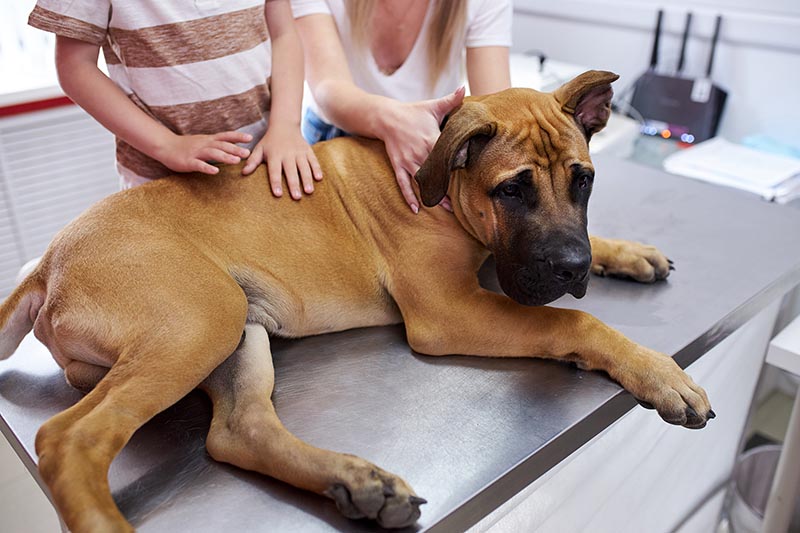
Conclusion
Dogs are curious by nature and will investigate anything and everything. It’s best to avoid buying potentially harmful products, such as rawhides or stringy toys. Monitor your dog while they’re playing with a toy, and keep dangerous objects out of their path. Buy size-appropriate toys too—you don’t want to buy a small toy made for a Pomeranian when you have a Labrador Retriever.
If you suspect that your dog has swallowed something that could be problematic, a trip to the vet is necessary to be safe. As a dog owner, you should familiarize yourself with signs of foreign body obstruction so you know what to look and watch for.
Featured Image Credit: Thomas G.,Pixabay

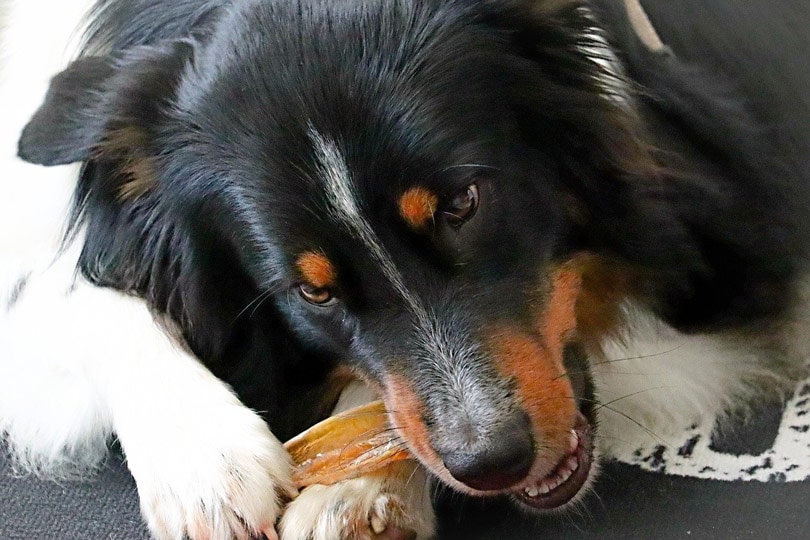
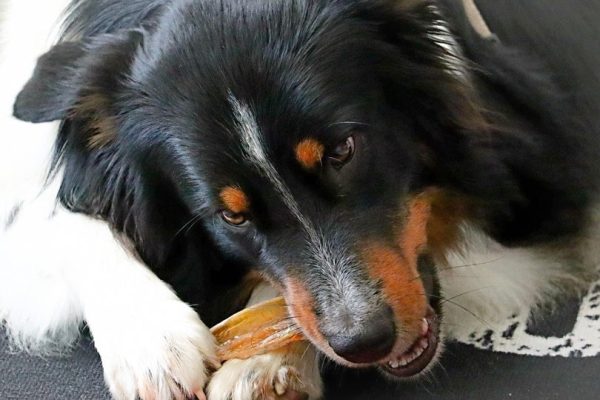

 Top 3 Factors That Will Affect the Prognosis of Your Dog
Top 3 Factors That Will Affect the Prognosis of Your Dog